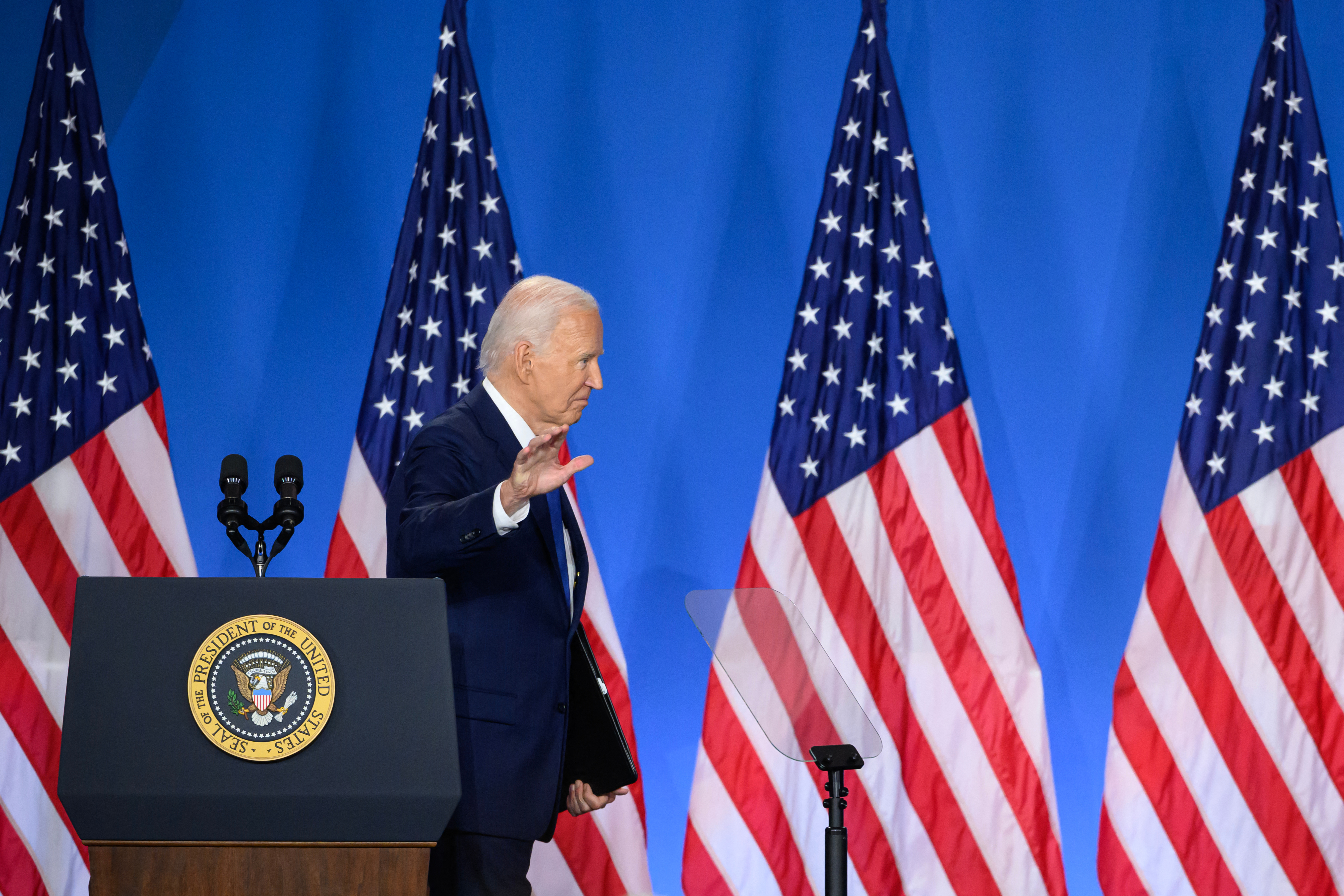Biden ends his reelection bid, endorses Kamala Harris

US President Joe Biden gestures as he leaves after speaking at a press conference at the close of the 75th NATO Summit at the Walter E. Washington Convention Center in Washington, DC on July 11, 2024. FILE PHOTO/Agence France-Presse
ATLANTA, United States — United States President Joe Biden says in a social media post that he is withdrawing from his reelection bid against Donald Trump. The announcement Sunday throws turmoil into the presidential election.
Biden’s decision comes on the heels of a poor debate performance that prompted many rank-and-file lawmakers to urge him to withdraw from the race. The president said he will address the American people later this week “in more detail about my decision.”
The announcement came following mounting calls from Democratic lawmakers to step aside.

READ: Biden nears crunch point as pressure grows to drop out
Meanwhile, after wrapping their national convention in Milwaukee last week, Republican officials, strategists and activists are exuding a confidence not seen in decades.
Donald Trump on Saturday held his first public campaign rally since he was injured in an assassination attempt, with an event in the battleground state of Michigan alongside his new running mate, Ohio Sen. JD Vance.
Endorsing his VP
But with President Joe Biden ending his reelection bid and endorsing Vice President Kamala Harris, Democrats now must navigate a shift that is unprecedented this late in an election year.
Democrats are set to hold their convention in Chicago on Aug. 19-22. What was supposed to be a coronation for Biden now becomes an open contest in which nearly 4,700 delegates will be responsible for picking a new standard-bearer to challenge Republican Donald Trump in the fall.
READ: Who could replace Biden if he withdraws from race?
The path ahead is neither easy nor obvious, even with Biden endorsing Harris. There are unanswered questions about logistics, money, and political fallout.
The immediate burden is on Harris to solidify support across almost 4,000 delegates from the states, territories and District of Columbia, plus more than 700 so-called superdelegates that include party leaders, certain elected officials and former presidents and vice presidents.
Other possible contenders
Even before Biden announced his decision, Democrats floated California Gov. Gavin Newsom and Michigan Gov. Gretchen Whitmer as potential contenders in addition to Harris. Yet some Democrats argued publicly, and many privately, that it would be a no-brainer to elevate the first woman, first Black woman, and first person of South Asian descent to hold national office.
Given how important Black voters—and Black women especially —were to Biden’s nomination and his choice of Harris as running mate, it would be risky, to say the least, for Democrats to pass her over for a white nominee. Democrats already faced historical headwinds before Biden’s withdrawal. Newsom and Whitmer, both of whom are white, and any other Democrat would also have to weigh the short-term and long-term benefits of challenging Harris now versus preserving goodwill for a future presidential primary.
Yet, fair or not, Harris also has not been viewed as an especially beloved or empowered vice president. The best scenario for her and Democrats is to quickly shore up support and project a united front. Democrats could even go forward with their plans for an early virtual vote – a move they’d planned to make sure Biden was selected ahead of Ohio’s general election ballot deadline.